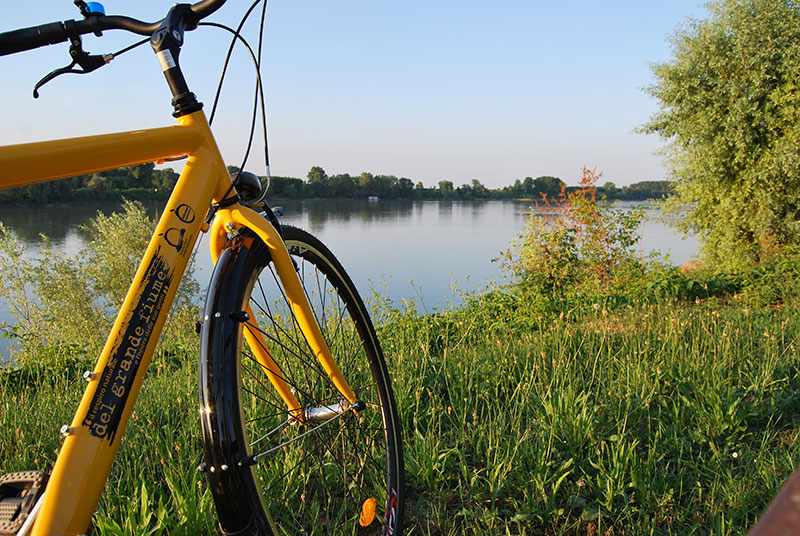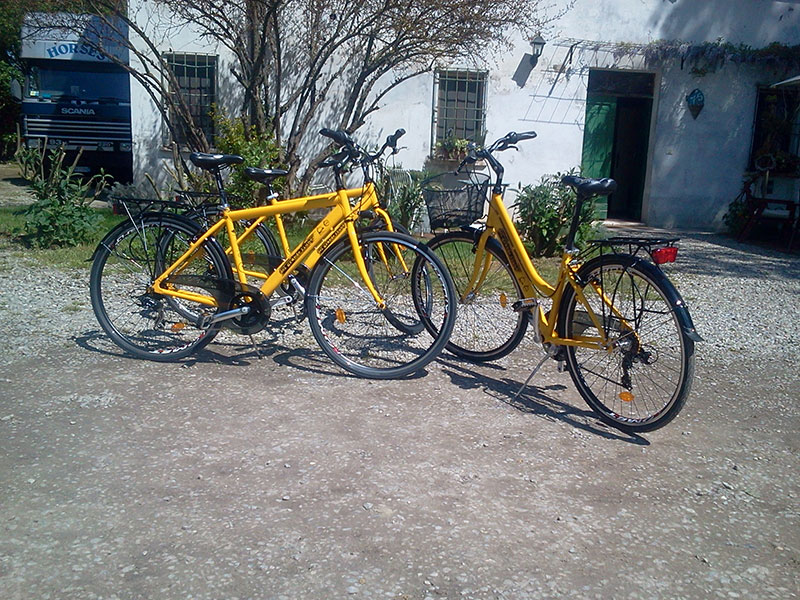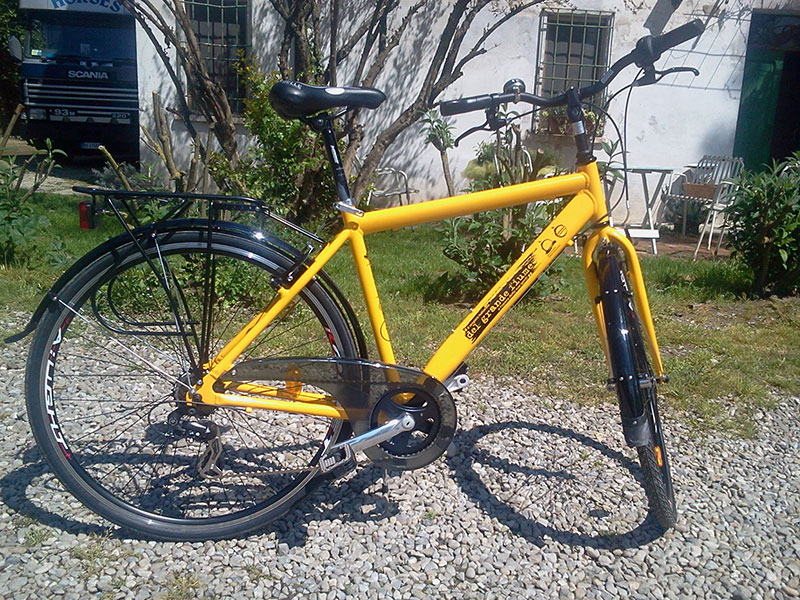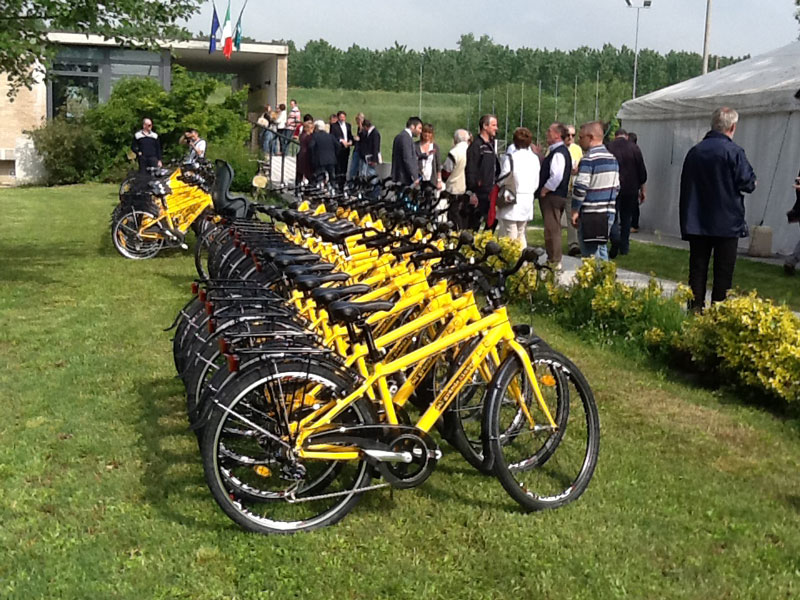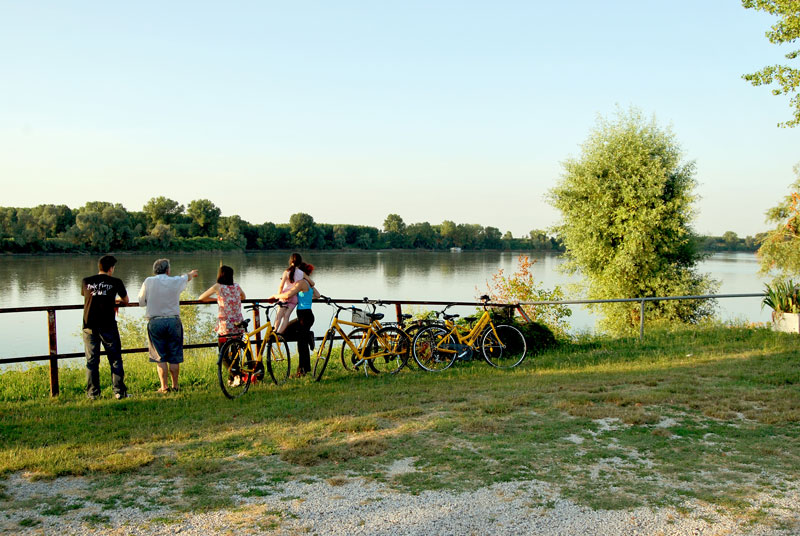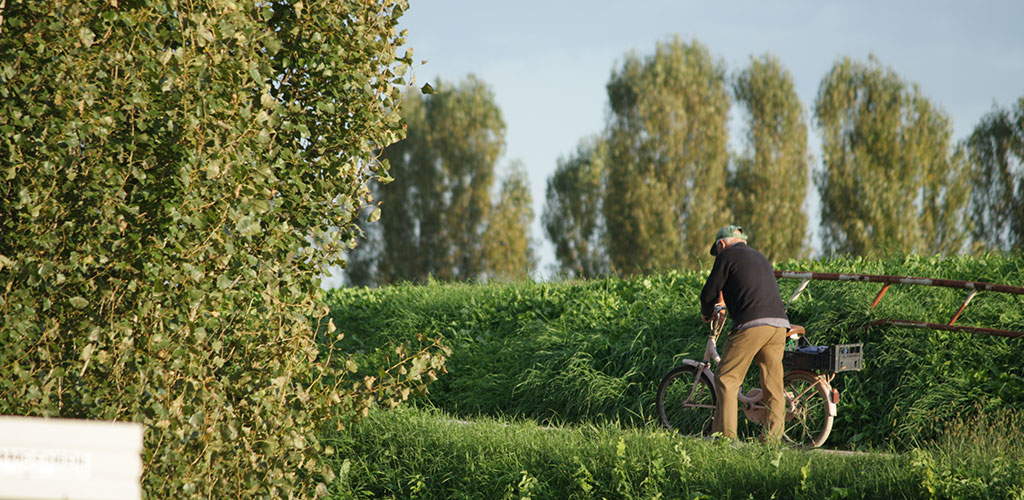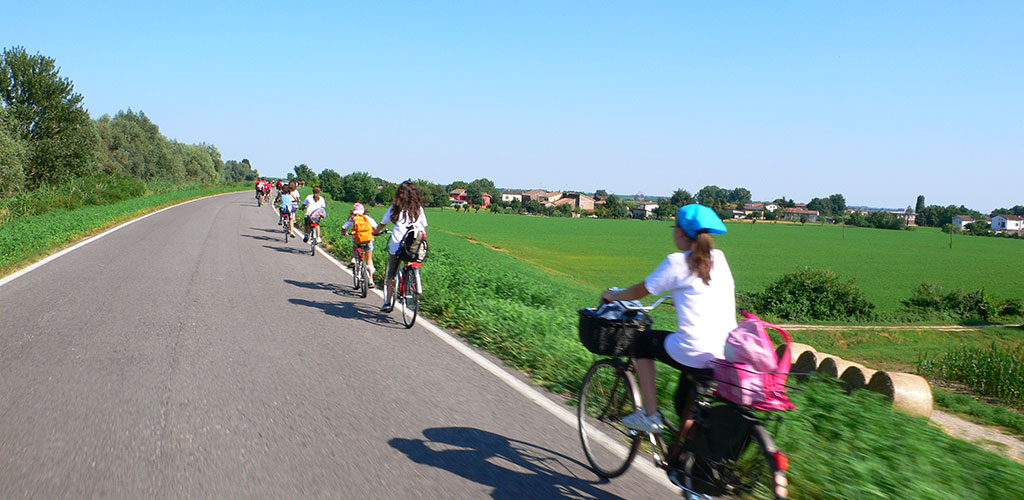The Mantuan Oltrepò Parks Cycle Route
The Mantuan Oltrepò Parks Cycle Route is a network of 270 kilometres of routes connecting all the wilderness areas in the Oltrepò.
A voyage of discovery reserved for bike lovers, to find out about
the nature at the heart of the Po Plain – marginal, residual nature, which has miraculously survived agricultural exploitation and been lovingly restored. Its value is increased exponentially by the presence of the most extraordinary ecosystem on the Po Plain – the Po river and its flood plains.
The cycle paths, both mixed use with low vehicle traffic and dedicated, wind along the extraordinary terraces formed by the embankments of the Po and Secchia rivers, the old Zara river bed and beside the main drainage channels.
I ride in the Oltrepò, I ride in Europe
The Parks Cycle Route is integrated with the Oltrepò Mantovano cycling itineraries, 470 kilometers of cycle paths of varying length and difficulty, to create your own journey of discovery in the Oltrepò.
The Oltrepò Mantovano cycling itineraries are in turn connected to the cycle routes of the provinces of Mantua, Ferrara, Modena and Reggio Emilia, the national routes Ciclovia del Sole (Verona – Florence) and VENTO (Venice – Turin), and the international routes EuroVelo 7 (North Cape – Malta), EuroVelo 8 (Cadiz – Cyprus) and Via Claudia Augusta (which connects the Po and Danube rivers).
Every turn of the pedals is a moment in the Mantuan Oltrepò which tells the thousand-year story of a land ripped out from the waters, which its people have made incredibly fertile thanks to their tenacity, ingenuity and the water itself.
» Discovering the Cycle Routes in the Mantuan Oltrepò (.Pdf)
Much more than a cycle path

The Parks Cycle Route is more than a simple itinerary, it is a complete system of cycle paths. Thanks to collaboration between private operators and local bodies, coordinated services are offered along the route – infopoints, bike mechanics and rest areas – guaranteeing cyclists a worry- free ride.
For those arriving by car or train who wish to then discover the area on two wheels, it is possible to borrow a bike from the Mantuan Oltrepò Parks’ “fleet” – a hundred bright- yellow bikes, customised for men, women and children, spread across twenty “bike points” located at farm holiday centres, farms, hotels and taverns.
Cyclists Welcome
Facilities belonging to the Parks Cycle Route network, by signing up to the cyclists’ services charter, have volunteered to provide certain essential services to cyclists for free:
- Water
- Emergency repair equipment
- Daily weather bulletin
- Rest areas for people and bike parking
- Information material
- Information on the Mantuan Oltrepò from the managers of the facility
A few simple gestures which testify to the traditional hospitality of this area, in recognition of those who wish to get to know it while respecting it.
Cyclists Welcome!
A trip to the lands of the Po
The Mantuan Oltrepò area is crossed by one of the most iconic European cycle routes: EuroVelo 8, the “Mediterranean Cycle Route” that connects the Andalusian city of Cadiz to the island of Cyprus…
INFORMATION
The Mantuan Oltrepò Parks Cycle Route
Photo gallery
